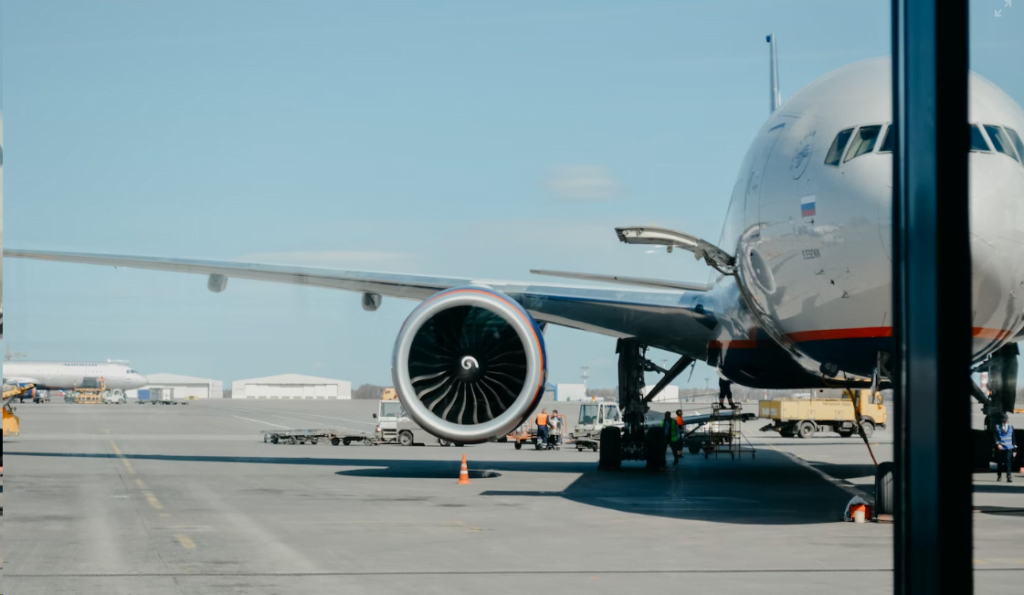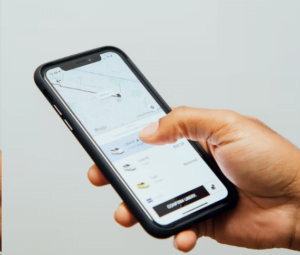Are you a new traveller or getting nervous prior to departing? Here are 30 top tips to help keep you safe from decades of travelling around the globe.

1. Research Your Destination Beforehand
Knowing what to expect and planning the basics of your trip will improve the enjoyment of your trip and what to expect. Keeping this research and itinerary in a plastic folder is a good way to stay organised.
Essential points to investigate before jet setting include:
- Does this country speak your language?
- Vaccination requirements (Mandatory & Recommended): ie Hepatitis A, Typhoid, Yellow Fever, COVID-19
- Visa Requirments
- How much you expect to pay for accommodation, food, and attractions?
- Are there any travel advisories for the region, Australia’s Smart Traveller service provides an excellent mostly unbiased overview of the country, any risks to lookout for and even lets you subscribe to updates
- If you plan to drive or ride a motorbike, what licences you may need
2. Ask Locals For Advice
Very few people know a place better than the locals. At your destination you should ask questions such as
- Is tap water safe to drink?
- Is there are dress-code?
- What time do shops and public transport close
- Are there any events to be aware of: Football match, elections, markets, protests
- Do you need to carry ID on you at all time?
- Is the area safe at night and are there any areas you should avoid
- How much certain taxi fares should cost, such as to the airport or to an attraction
- Are there any scams or things you need to look out for?
3. Have A Working Phone When You Leave The Airport
As tempting as it is to save a few dollars by buying a local simcard on the street outside the airport, avoid being caught out in a foreign country without a means of communication.
Prior to arriving at the destination do some research on what provider has the best coverage as it can vary greatly and a rough idea on how much it should cost. Some countries such as Vietnam and Indonesia have strict procedures when issuing sim cards to tourists and if not done correctly may result in the sim being disabled after a few days.
Many providers including Vodofone have international roaming plans for a fixed amount per day to remove the need for getting a local sim card or new number.
4. Avoid Taxi’s and Use Rideshare Apps

All over the world taxi’s are renowned for taking advantage of tourists such as overcharging, dropping off at the wrong location and in some cases not even being accredited taxi’s.
By using RideSharing apps such as Uber, Didi and Grab you avoid many of these risks as you know the approximate price of the trip in advance, the driver’s details and can pay electronically via the APP to avoid any issues when it comes time to pay. If you have any issues such as a lost item or a problem with the driver, you can reach out to support through the APP.
Be sure to triple-check the registration number on the vehicle match’s that to the one displayed on the APP before hopping in or loading your bags!
5. Verify Where You Are Going
Be vigilant when on the move, if travelling by Taxi, Private Car or Bus always follow the ride on your phone to ensure your going in the right direction. It’s a good idea to type the address into Google Maps prior to the journey so you know the approximate direction and time it should take.
6. Have Pictures or Printouts of the Destination Address
Getting to the correct destination is often harder than first appears, especially if there is a language barrier. Where possible screenshot the address and contact information as it appears on the location’s website or bring a copy of the brochure. Make it a habit of picking up your hotel’s business card and putting it in your wallet. Don’t assume your driver can speak English or that the Address translates correctly!
7. Don’t make yourself an attractive target
It’s no mystery that thieves have preferences and tend to target individuals with flashy valuables or appear wealthy

- Avoid wearing designer brand-name designer clothing and shoes
- Don’t wear expensive jewellery and watches
- Avoid bring out expensive electronics like cameras, smartphones and laptops in public
- Leave unnecessary valuables at home
- Avoid walking around with your mobile phone in hand
Tourists who flout their wealth often become targets. While sometimes impossible depending on the country, try to blend into the crows and avoid looking like a tourist!
8. Always lock your hotel doors and windows
Make it a habit to always lock your hotel room behind you and latch the security chain, be mindful of an adjacent room that may interconnect to your room. If you have concerns about the safety of the hotel at night barricade the door with a chair and hang a mug with teaspoons in it from the handle.
It may be advisable to leave the ‘Do Not Disturb’ sign out to give the appearance you are still in the room and deter House Keeping from entering the room.
9. Don’t Put Things in Your Back Pocket

Pick-pocketers are rampant throughout the world and a wallet or phone in your back pocket is easy pickings. Always put valuables in a deep pocket either in front of beside you. Putting a rubber band or two around the wallet makes it very hard to remove from a pocket unnoticed.
In some countries it’s advisable to have a 2nd decoy wallet with expired cards and only a small amount of cash in it.
10. Remove unnecessary contents from your wallet
Only carry the essentials in your wallet, leave that blockbuster video card at home and keep your wallet thin. If you may need some cards and extra ID on the trip, leave them in your main luggage in the hotel along with any foreign currency.
This reduces bulky wallets which stand out, makes it faster to use and limits how much you lose if your wallet gets stolen.
11. Avoid Carrying Purses
In many countries Purse snatching is on the rise where individuals either on foot or on a motorbike rip the handbag off the victim. This can lead to the victim being pushed to the ground and in some cases dragged into traffic. Unless absolutely needed handbags should be avoided.
12. Lock Your Backpack & Bag Zippers
Similar to pickpocketers, thieves are excellent at opening zippers and removing valuables without your knowledge. This can be defeated by putting small locks on zippers or even something as simple as a paperclip to significantly increase the complexity and likelihood of you noticing something is amiss.
This is particularly important on bus trips where luggage is stowed under the bus or through airports. A cheap solution is using zip-ties to secure the zips which acts as both a deterrent and tamper seal.
13. Hide Emergency Cash

Having ~$200/usd in cash securely hidden in your belongings can get you out of a tough spot. In some areas it’s common for power/internet failures that knock out card transactions and ATM’s or act as a safety net to get by if your primary source of money is unavailable. Cash is also a proven way to solve problems in many parts of the world, in particular with authorities.
14. Have Multiple Bank Cards & Tell Your Bank Where Your Going
Never become reliant on only 1 bank card. It’s very common for banks to freeze cards when used overseas, for them not to work at all or an incident occurring such as skimming requiring it to get cancelled. Always notify your bank at-least 1 week before travelling on your travel dates and countries you will be visiting.
It is recommended to keep your secondary card in a separate place, such as in your luggage at the hotel in case your wallet gets stolen. Be mindful that many non-western nations do not accept American Express.
If making online purchases, be sure the SMS number used for 2FA codes is reachable if going overseas.
15. Use ATM’s Within Banks Where Possible
Not all ATM’s are trustworthy. By using ATM’s housed within reputable banks you have more assurance the device hasn’t been tampered with, has reasonable fees (compared to private ATM’s) and you have support if it eats your card.
If using a potentially sketchy ATM make sure you take the following precautions:
- Beware of your surroundings and anyone hanging around you
- Tug on the card reader and check there is no skimmer or extra devices on it
- Inspect the area around the keypad for any hidden cameras
- Note any extra fees on the ATM before continuing with the transaction
- Check the correct amount of money was withdrawn and verify the total deducted from your bank
- Once you’ve checked the money, immediately put it in your wallet and make sure your wallet is secure before walking away
- Regularly check your online banking for suspect transaction
16. Know The Exchange Rate
Download the XE app and know the basics of the currency, such as if 10000 units of currency is a large amount or just enough to buy a loaf of bread. When buying expensive items or exchanging currency always compare the rates to ensure you aren’t getting ripped off.
17. Avoid Carrying Large Sums Of Money
In most countries it is unnecessary to carry large amounts of cash on you. Unless you have a specific reason you should limit the amount of cash carried to 2 days worth of expected spending.
This limits the loss if you are robbed and forces you to use smaller bills which can reduce the likelihood of you being shortchanged. Ideally keep larger notes in a separate place and top up the wallet as needed.
18. Always wear seat-belts & Helmets
It should go without saying! If travelling always wear your seat-belt and helmet. Even minor collisions can result in serious injury and life-changing injuries or take you out of action for the holiday. This may be a requirement of your travel insurance in the event of an accident.
If riding a motorbike, ensure you are wearing a good quality well fitting helmet and leather gloves. Consider wearing a full-face helmet and bringing your own helmet as quality and sizes may be limited.
19. Carry copies of Important Documents

Getting replacement documents replaced in a timely manner can be hard. Where possible you should always hand over photocopies of important documents such as Passports as opposed to the original documents. Be extremely opposed to letting organisations such as hotels and rental companies holding onto your passport.
Copies of your documents should be kept separate to where the original documents are held, such as in your check-in luggage and a copy existing online in a secure place such as in your email inbox.
20. Never Leave Your Belongings Leave Your Sight Sight
If waiting at a public place such as a train station, never be more than an arm’s length and ideally loop one of the straps around either your arm or leg. Even a minor hindrance can make a thief think twice and move onto an easier target. Be aware of thieves working groups where one might distract you momentarily and when you turn back your bag is gone.
14. Never Leave Your Drink Unattended

Drink spiking isn’t just limited to nightclubs and can happen to anyone at any time. Often it is targeted towards young women leading to sexual assault, however in certain areas it’s a method for theft once the victim has passed out.
Common symptoms include feeling drunk and disorientated even if you’ve had a little to drink or feeling sleepy. In many cases you will have no recollection of the events which took place once you wake up.
Tips to avoid drink spiking:
- Never accept drinks from strangers or accept an offer to taste their drink
- Always buy your own drink and watch your drink being poured
- Never leave your drink unattended if you need to go the toilet or take a phonecall
- If you feel strange, immediately let staff know you think your drink has been spiked and ask for help
- Try to go out with people you know and friends who will look out for you
21. Regularly Backup Your Devices
If the worst happens and your device becomes damaged or stolen, having a backup can be priceless. On phones enable iCloud or cloud backup, on laptops consider keeping important files in Dropbox. Consider backing up the SD card of cameras every couple of days.
It is a good idea to verify encryption has been enabled on your devices to protect the data in the event it is lost or stolen.
22. Use A VPN
Internet abroad can be sketchy. Using a VPN reduces the risks of cyber sleuths stealing credentials over insecure WIFI and can help circumvent government censorship. Another strong advantage is being able to appear as being from your home country which may be a requirement to sign onto your local accounts.
For the past few years I have been using Surfshark which costs less than a cup of coffee a month and allows you to use the VPN on an unlimited number of devices.
Use the following link to get an extra 30 days on your Surfshark Subscription
23. Carry a basic first-aid kit
Having a basic first aid kit on hand is a great way to take care of basic issues such as splinters, small cuts, insect bites and blisters. Be mindful of carrying scissors through airport security and strong medications which may be prohibited in some countries without a prescription.
24. Bring A Torch
Never underestimate the handiness of a little light. A good torch can serve as both a role for safety as a deterrent if walking alone and a handy way to recover lost items which have rolled under furniture.
My personal preference is to bring both a powerful torch and a small keychain light for filling out paperwork.
27. Keep Your Voice Down
Drawing attention to yourself is a key part of how people get themselves into trouble. Avoid discussing sensitive topics in public like what hotel you’re staying at, what you are carrying and what country you are from.
25. Take Out Travel Insurance
When things go very wrong you need a good travel insurance policy could save your live. Medical injuries outside of your home country can be eye-watering expensive and could require emergency evacuation.
Many policies also include coverage against theft. Be sure to write down the model and serial numbers of your equipment before you leave and where possible have receipts. You may need to make a police report after an incident. Read the terms and conditions of your policy carefully.

28. Checkin Regularly
Keep in contact with friends and family on a regular basis. If you’re planning to go off the beaten track and likely to be out of contact for an extended time ensure they are aware of your itinerary and when they are expected to hear from you next.
29. Look Confident
Having confidence and an assured appearance is one of the best ways to avoid unwanted trouble. This is as people who appear lost and unsettled often come across as more weak, less likely to offer resistance to an opportunistic assailant.
If you are lost, resist panicking and dropping all your bags to pull out your phone or frantically looking for a landmark. Instead make your way into a hotel foyer or cafe to establish your bearings.
Never feel pressured into a deal such as a purchase or pushy taxi driver, if things are not working out politely firmly excuse yourself and walk away.
30. Trust Your Instincts
Humans are excellent at subconsciously recognising dangerous situations with many people getting a strange spider sense or ‘gut feeling’ when things aren’t quite right. This could be as simple as having a odd feeling about a taxi, a certain street vendor, person at a bar being overly friendly or a dimly lit street that looks sketchy.
If something feels wrong and you’re put on the spot, edge on the side of caution and avoid it. You can always revisit it another day.
What tips do you have? Let us know in the comments below